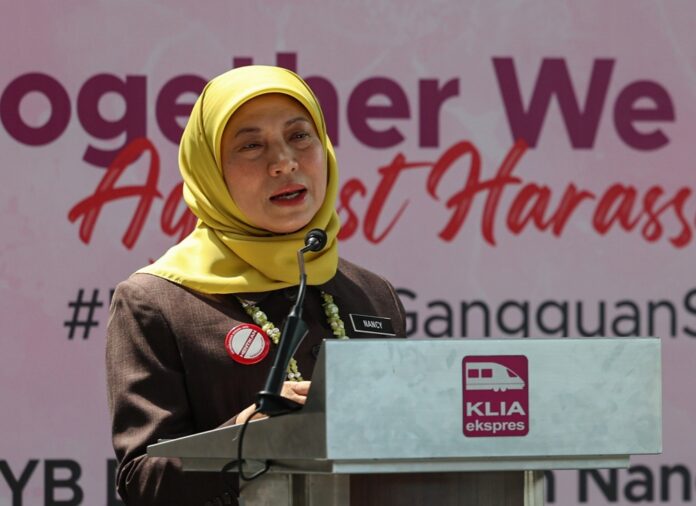KUALA LUMPUR, Oct 5 — The proposed law to elevate social workers that is to be presented in Parliament next year still needs refining, Women, Family and Community Development Minister Datuk Seri Nancy Shukri said.
She said various groups including non-government organisations have provided their views on the Social Work Profession Bill and that the draft is in its final stage now, but has yet to be passed on to the Attorney General’s Chambers (AGC) for a review, The Sunday Star reported today.
“The progress on the Social Work Profession Bill is coming, many people are giving their input. It was good to hear from them. We cannot claim to know everything, but at the same time, it is important for us to have the Bill drafted as soon as possible.
“The draft is still with us, we have not submitted it to the AGC because there is just so much information. But we cannot wait for everything, we have to get it moving and pass it to the AGC, and work from there,” she was quoted as saying.
Nancy said the Social Work Profession Bill is important to recognise the contributions of social workers in the economy and to regulate the profession.
“Caring for and supporting such individuals would have a positive impact on the community,” she was quoted as saying.
In addition to advancements in social work regulation, Nancy told The Star about the government’s plans to implement mandatory background screening for babysitters as an initiative to mitigate cases of child abuse within daycare and care centres.
She revealed that from 2020 to May 2023, 21 cases of child abuse had been reported to the Welfare Department under her ministry.
She also said many women were engaged in unpaid caregiving responsibilities at home, and that this needed to be addressed for the sake of their mental health.
“The ministry provides financial support of RM500 to help these women establish their own businesses, offering both a tangible boost and an opportunity for self-awareness,” she was quoted saying.
She said that the implementation of psychometric tests as part of the background screening process for child carers is a practice that aims to assess the emotional well-being and state of mind of potential caregivers.
“It’s done through our counsellors. That’s a common thing we’re doing now, but you can see from the psychometric tests, their feelings and state of mind.
“For example, we have an entrepreneurship programme to help women start their home business. Participants also go through the process and from their drawings and choice of colours, we can see how this translates from their feelings,” she was quoted as saying.
Nancy also proposed a comprehensive screening mechanism to address concerns about child protection in daycare centres.
She said that this approach involves thorough checks on individuals entering the workforce and requires a criminal record assessment by the police.
The newspaper reported that Nancy provided statistics demonstrating that abuse cases in daycare centres and institutions under her ministry are comparatively low, with only four reported cases as of May, three in Johor and one in Selangor.
She stressed the need to empower children, emphasising collaborative efforts with the Education Ministry in promoting reproductive health and personal safety.
She also said her ministry had discussed having a dedicated phone line for children, separate from the existing Talian Kasih, but deemed that it is not practical currently.
“We have explored that, but it’s not really practical. You want speedy action, so we have just one line, which is 15999 with the same people responding to the calls, and they are trained personnel.
“But it doesn’t mean we say no totally; if there is a very efficient system, then maybe we can cater to that.
“If there’s more than one phone number, we find it’s not going to be very practical; it will be like ‘calling the bank’, press ‘1’ for children, press ‘2’ for women, and so on.
“Let’s say 15999-1 is the line for children and 15999-2 is for women, then the burden is on the people making that call to remember the numbers. We don’t want to pass the burden to the people. So, we have 15999 and the personnel answering it know what to do,” she was quoted as saying.
She assured that protection officers are available round the clock working in three shifts to respond promptly to calls.
Reflecting on response times to child protection cases, she acknowledged the subjectivity of such situations.
“From my own experience, someone had texted me at 2am just relating to me a child abuse incident happening next door. I couldn’t sleep once I got the news, so I texted the Welfare Department director-general and he immediately texted me back and had an officer look into it.
“Not all cases are like that, but we do have to act as soon as possible,” she was quoted as saying.


